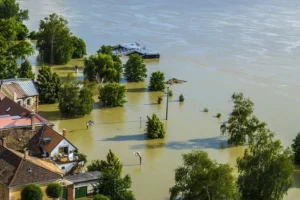Key Disaster Dataset Discontinued the US National Oceanic and Atmospheric Administration (NOAA) announced on May 8, 2025, that it will stop updating its widely used Billion-Dollar Weather and Climate Disasters database. The decision is part of broader changes under the Donald Trump administration, including staff reductions and shifting priorities that have impacted the agency’s climate operations.

Critical Resource for Climate Costs Retired
NOAA has played a central role in tracking the financial toll of floods, heatwaves, hurricanes, wildfires, and other climate-related disasters for over four decades. Its data, used by governments, insurers, and researchers, estimated trillions of dollars in damages across the US. The agency stated that all reports from 1980 to 2024 will remain archived but won’t be updated further.
Other NOAA Products Also Face Cuts Alongside the retirement of the disaster cost database, NOAA is also ending several data services, including the Global Ocean Currents Database, Manual Dvorak Estimates for the South Atlantic, and the Marine Environmental Buoy Database. These cuts signal a downsizing of NOAA’s scientific and monitoring capabilities at a time of intensifying climate-related events.
FEMA Administrator Fired After Opposing Closure
In a separate development, FEMA Acting Administrator Cameron Hamilton was dismissed on the same day for publicly opposing plans to weaken or eliminate the agency. Hamilton had testified before Congress on May 7, 2025, voicing concerns about disaster preparedness. FEMA’s website has since begun reflecting updates aligned with new executive directives.
Growing Concern Over Transparency and Safety
Experts warn that the end of NOAA’s disaster cost tracking could hinder public awareness of the escalating financial impact of climate change. As extreme weather events increase in frequency and severity, the lack of comprehensive data may challenge policy responses and public safety efforts in vulnerable regions.
